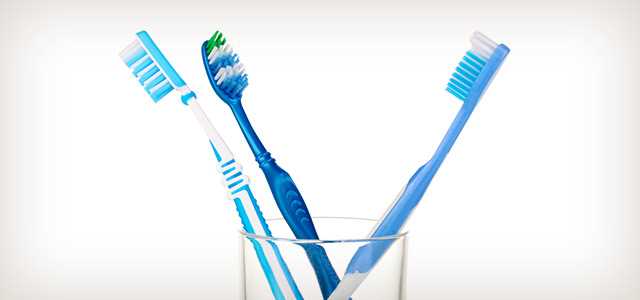
When it comes to maintaining good oral hygiene, finding the right toothpaste is essential. However, many people are becoming more conscious of the ingredients found in traditional toothpaste and are seeking alternative options. Thankfully, there are natural and effective substitutes that can provide the same benefits without the use of harsh chemicals and additives.
One popular alternative toothpaste option is baking soda. Baking soda has been used for centuries as a natural cleaning agent, and it has the ability to remove stains and neutralize acids in the mouth. Its abrasive properties help to scrub away plaque and leave your teeth feeling clean and refreshed.
Another natural substitute is coconut oil. Coconut oil has gained popularity in recent years for its numerous health benefits, and it can also be used as a toothpaste. It has antimicrobial properties that can help fight bacteria in the mouth, reducing the risk of tooth decay and gum disease. Additionally, coconut oil can help whiten teeth and freshen breath.
For those who prefer a minty flavor, essential oils such as peppermint or spearmint can be added to natural toothpaste alternatives. These oils not only provide a refreshing taste, but they also have antibacterial properties that can help kill harmful bacteria in the mouth. Using essential oils in your toothpaste can give you a clean and minty fresh feeling without the use of artificial flavors or chemicals.
Overall, there are plenty of natural and effective substitutes for traditional toothpaste. Whether you choose baking soda, coconut oil, or essential oils, these alternatives can provide the same oral hygiene benefits without the potential risks associated with synthetic ingredients. So why not give these natural options a try and see how they can improve your dental health?
- Coconut Oil Toothpaste: A Natural and Effective Alternative
- Benefits of Using Coconut Oil Toothpaste
- 1. Antibacterial Properties
- 2. Reduces Bad Breath
- How to Make Coconut Oil Toothpaste at Home
- Gather the Ingredients:
- Instructions:
- Baking Soda Toothpaste: An Affordable and Whitening Option
- Benefits of Baking Soda Toothpaste
- How to Use Baking Soda Toothpaste
- Advantages of Using Baking Soda Toothpaste
- 1. Natural Whitening Properties
- 2. Neutralizes Acidic Environment
- Simple Recipe for Baking Soda Toothpaste
- Charcoal Toothpaste: A Trendy and Detoxifying Choice
- Why choose charcoal toothpaste?
- Effective usage and precautions
- Pros and Cons of Charcoal Toothpaste
- Pros of Charcoal Toothpaste:
- Cons of Charcoal Toothpaste:
- Frequently asked questions:
- What are the benefits of using natural toothpaste?
- Can natural toothpaste whiten teeth?
- Are there any downsides to using natural toothpaste?
- Can natural toothpaste prevent cavities?
- Is natural toothpaste safe for children?
- What are some natural alternatives to toothpaste?
Coconut Oil Toothpaste: A Natural and Effective Alternative
Coconut oil has gained popularity in recent years as a natural remedy for a variety of health concerns, including oral hygiene. Many people are turning to coconut oil toothpaste as an alternative to conventional toothpaste.
Why coconut oil?
Coconut oil contains antibacterial and antifungal properties that can help kill harmful bacteria in the mouth. The lauric acid found in coconut oil has been found to effectively combat the Streptococcus mutans bacteria, which is a major contributor to tooth decay and gum disease.
Unlike conventional toothpaste, coconut oil toothpaste does not contain harsh chemicals or artificial ingredients. It is a natural and safe option for those looking to avoid potentially toxic substances.
How to make coconut oil toothpaste:
There are many variations of coconut oil toothpaste recipes, but a simple one involves mixing equal parts coconut oil and baking soda. You can also add a few drops of peppermint essential oil for a fresh flavor. Mix the ingredients until they form a smooth paste-like consistency.
Note: Coconut oil is solid at room temperature, so you may need to warm it slightly before mixing.
How to use coconut oil toothpaste:
Using coconut oil toothpaste is similar to using regular toothpaste. Simply apply a small pea-sized amount to your toothbrush and brush your teeth as usual. The natural antibacterial properties of the coconut oil will help keep your mouth clean and fresh.
It’s important to note that coconut oil toothpaste may not foam like conventional toothpaste. This is normal and does not affect its effectiveness.
Benefits of coconut oil toothpaste:
Using coconut oil toothpaste offers several benefits. It not only cleans and freshens your mouth, but it also helps:
- Prevent tooth decay and gum disease
- Reduce plaque buildup
- Improve bad breath
- Whiten teeth
Conclusion:
Coconut oil toothpaste is a natural and effective alternative to conventional toothpaste. Its antibacterial properties and lack of harmful chemicals make it a popular choice among those seeking a more holistic approach to oral hygiene. Give it a try and experience the benefits for yourself!
Benefits of Using Coconut Oil Toothpaste
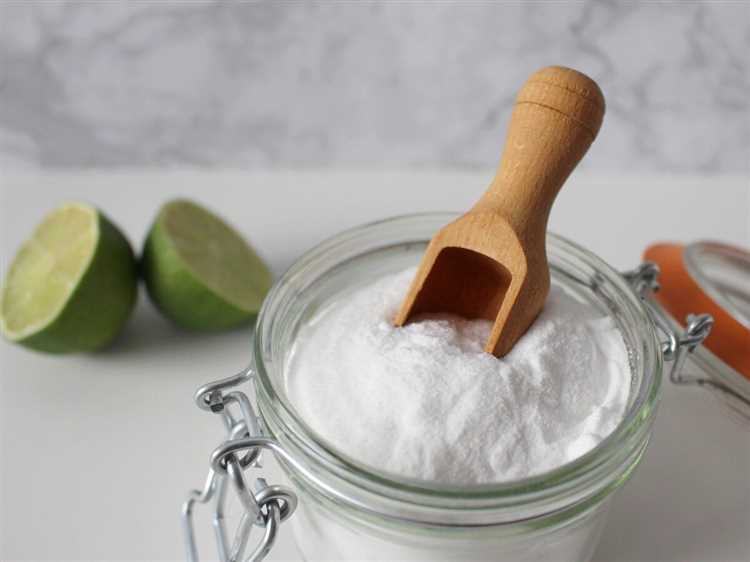
Coconut oil toothpaste has gained popularity in recent years as a natural alternative to traditional toothpaste. This is because coconut oil offers several benefits for oral health.
1. Antibacterial Properties
Coconut oil contains lauric acid, which is known for its antibacterial properties. When used as a toothpaste ingredient, coconut oil can help kill harmful bacteria in the mouth, preventing gum disease and tooth decay.
2. Reduces Bad Breath
Bad breath can be embarrassing and indicative of poor oral health. Coconut oil toothpaste can help combat bad breath by killing the bacteria that cause it. Additionally, coconut oil has a pleasant taste and can leave your mouth feeling fresh.
3. Natural Whitening Effect
Yellowing or stained teeth can make you feel self-conscious. Coconut oil contains natural enzymes that can help remove stains from the surface of your teeth. Regular use of coconut oil toothpaste can lead to a brighter, whiter smile.
Overall, by using coconut oil toothpaste, you can benefit from its antibacterial properties, ability to reduce bad breath, and natural whitening effect. It’s a great option for those looking for a natural and effective toothpaste substitute.
How to Make Coconut Oil Toothpaste at Home
Coconut oil has gained popularity in recent years for its versatility and health benefits. One of its many uses is as a natural toothpaste. Making your own coconut oil toothpaste at home is simple and cost-effective. Here’s a step-by-step guide on how to do it:
Gather the Ingredients:
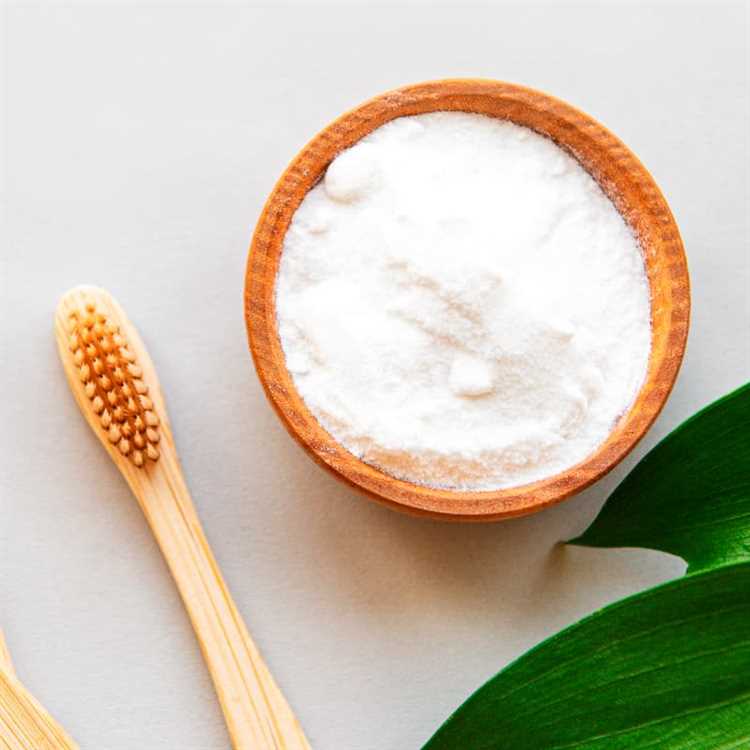
To make coconut oil toothpaste, you will need the following ingredients:
- 4 tablespoons of organic coconut oil
- 2 tablespoons of baking soda
- 10-15 drops of peppermint essential oil (optional for flavor)
Instructions:
- Melt the coconut oil over low heat until it becomes a liquid.
- In a bowl, combine the melted coconut oil, baking soda, and peppermint essential oil (if desired).
- Mix the ingredients thoroughly until they form a smooth paste.
- Transfer the homemade toothpaste to a small jar with a lid for storage.
Note: Coconut oil solidifies at temperatures below 76°F (24°C), so your toothpaste may harden or soften depending on the room temperature. If it hardens, simply scoop a small amount onto your toothbrush and it will melt in your mouth.
Remember: Coconut oil toothpaste does not contain fluoride, so it should be used in conjunction with regular brushing and dental hygiene practices. Consult your dentist if you have any concerns or specific dental conditions.
Making your own coconut oil toothpaste allows you to control the ingredients and avoid the potentially harmful chemicals found in many commercial toothpaste brands. Give this natural and effective substitute a try for a healthier smile!
Baking Soda Toothpaste: An Affordable and Whitening Option
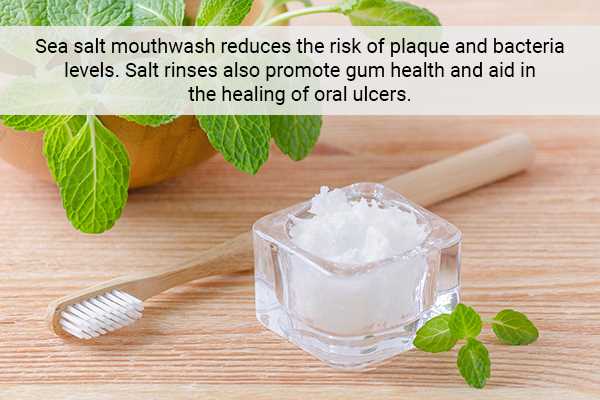
Baking soda toothpaste is a popular alternative to traditional toothpaste because of its affordability and whitening properties. It is a natural and effective substitute that can provide numerous benefits for your oral health.
Benefits of Baking Soda Toothpaste
- Whitening: Baking soda has natural whitening properties that can help remove stains and discoloration from your teeth.
- Plaque removal: Baking soda can effectively remove plaque from your teeth, reducing the risk of cavities and gum disease.
- Neutralizes acidity: Baking soda can help balance the pH levels in your mouth, preventing tooth decay and enamel erosion caused by acid.
- Freshens breath: Baking soda has deodorizing properties that can help freshen your breath by neutralizing odors.
How to Use Baking Soda Toothpaste
Using baking soda toothpaste is similar to using regular toothpaste. Simply wet your toothbrush, apply a pea-sized amount of baking soda toothpaste, and brush your teeth for two minutes. Rinse thoroughly afterwards. You can use baking soda toothpaste in addition to or as a replacement for your regular toothpaste, depending on your preference.
It is important to note that baking soda toothpaste may be abrasive if used excessively or with excessive pressure. It is recommended to use it in moderation or consult with your dentist, especially if you have sensitive teeth or existing dental conditions.
In conclusion, baking soda toothpaste offers an affordable and whitening option for those looking for a natural alternative to traditional toothpaste. With its numerous benefits and easy usage, it can be a great addition to your oral care routine. Remember to use it responsibly and consult with your dentist if you have any concerns.
Advantages of Using Baking Soda Toothpaste
Baking soda toothpaste offers several advantages over traditional toothpaste options. Here are some key benefits:
1. Natural Whitening Properties
Baking soda is known for its natural whitening properties. It helps to remove surface stains and debris, leaving your teeth looking brighter and more vibrant. Regular use of baking soda toothpaste can contribute to a more radiant smile.
2. Neutralizes Acidic Environment
Acidic pH levels in the mouth can lead to tooth decay and enamel erosion. Baking soda helps to neutralize these acidic conditions, creating a healthier environment for your teeth and gums. This can help prevent cavities and other dental issues.
In addition to these advantages, baking soda toothpaste is often free of harsh chemicals and artificial additives, making it a safer and more natural option for oral care. However, it’s important to note that baking soda toothpaste may not be suitable for everyone. It can be abrasive, so it’s important to use it in moderation and consult with your dentist if you have sensitive teeth or gums.
Overall, baking soda toothpaste can be a beneficial addition to your oral care routine. Its natural whitening and neutralizing properties make it an attractive alternative to traditional toothpaste. Consider giving baking soda toothpaste a try and see the positive impact it can have on your smile.
Simple Recipe for Baking Soda Toothpaste
If you’re looking for a natural and effective substitute for toothpaste, why not try making your own with baking soda? Baking soda is not only an affordable option, but it also has fantastic oral health benefits. It can help neutralize acids in the mouth, remove stains, and freshen breath.
To make your own baking soda toothpaste, you will need the following ingredients:
| Ingredients: | Quantity: |
|---|---|
| Baking soda | 2 tablespoons |
| Water | 2 tablespoons |
| Peppermint essential oil | 5-10 drops |
To prepare the toothpaste:
- In a small bowl, mix the baking soda and water until it forms a smooth paste.
- Add the peppermint essential oil to the mixture and stir well to combine.
- Scoop the toothpaste into a small container with a lid for storage.
When using your homemade baking soda toothpaste, simply apply a small amount to your toothbrush and brush your teeth as you normally would. Be sure to rinse thoroughly afterward.
It’s important to note that baking soda toothpaste may taste different from what you’re used to, but the benefits for your oral health make it worth a try. Additionally, some people may experience tooth sensitivity when using baking soda, so it’s best to consult with your dentist if you have any concerns.
So why not give this simple recipe for baking soda toothpaste a go? You may find that it’s a natural and effective alternative to traditional toothpaste.
Charcoal Toothpaste: A Trendy and Detoxifying Choice
Charcoal toothpaste has gained significant popularity in recent years as a trendy and detoxifying alternative to traditional toothpaste options. Made from activated charcoal, this toothpaste is known for its ability to effectively remove stains and whiten teeth.
The activated charcoal in this toothpaste works as an absorbent agent, attracting and removing toxins and impurities from the surface of the teeth. It also helps in removing plaque and tartar buildup, promoting better oral health.
Why choose charcoal toothpaste?
One of the main reasons people opt for charcoal toothpaste is its natural and chemical-free composition. It is free from harmful ingredients such as fluoride, sulfates, and artificial preservatives. This makes it a suitable alternative for individuals with sensitive teeth or those looking for a more natural oral care routine.
Another benefit of charcoal toothpaste is its teeth-whitening properties. Its abrasive nature gently polishes the surface of the teeth, effectively removing surface stains caused by coffee, tea, or smoking. Regular use of charcoal toothpaste can result in noticeably whiter teeth over time.
Effective usage and precautions
To effectively use charcoal toothpaste, apply a pea-sized amount onto a toothbrush and gently brush your teeth for two minutes. Be cautious while brushing, as the charcoal can be messy and may stain clothes or bathroom surfaces.
It is important not to use charcoal toothpaste more than the recommended amount, as excessive use may damage the tooth enamel. It is also recommended to consult a dentist before incorporating charcoal toothpaste into your oral care routine, especially if you have any pre-existing dental conditions.
In conclusion, charcoal toothpaste is a trendy and detoxifying choice for those seeking an alternative to traditional toothpaste options. Its natural composition, teeth-whitening properties, and ability to remove toxins make it a popular option among individuals looking to improve their oral health in a more natural and effective way.
Pros and Cons of Charcoal Toothpaste
Charcoal toothpaste has gained popularity in recent years as a natural alternative to traditional toothpaste. Made from activated charcoal, this type of toothpaste claims to have several benefits for oral health. However, like any product, charcoal toothpaste also comes with its pros and cons.
Pros of Charcoal Toothpaste:
1. Teeth Whitening: One of the main benefits of charcoal toothpaste is its ability to whiten teeth. Charcoal is known for its adsorbent properties, meaning it can attract and remove stains from the surface of teeth, resulting in a brighter smile.
2. Freshens Breath: Charcoal toothpaste also helps eliminate bad breath by absorbing odor-causing bacteria in the mouth. Its natural anti-bacterial properties can leave your mouth feeling fresh and clean.
3. Gentle Cleaning: Charcoal toothpaste offers a gentle yet effective cleaning experience. It can remove plaque and tartar buildup without causing damage to the tooth enamel, unlike some abrasive traditional toothpaste formulas.
Cons of Charcoal Toothpaste:
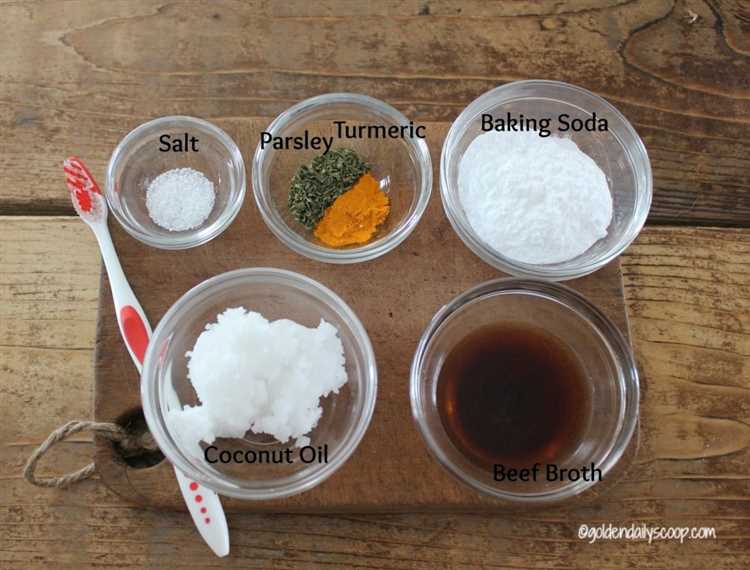
1. Messy Application: One downside of charcoal toothpaste is its messy application. The dark color of the paste can stain your sink or clothes if not used carefully. It’s recommended to use a separate toothbrush dedicated to charcoal toothpaste to avoid staining.
2. Lack of Fluoride: Unlike most traditional toothpaste, charcoal toothpaste generally does not contain fluoride. Fluoride is an essential ingredient for preventing tooth decay and strengthening enamel. Therefore, using charcoal toothpaste exclusively may not provide adequate protection against cavities.
3. Limited Scientific Evidence: While many users claim positive results from using charcoal toothpaste, there is limited scientific evidence to support its effectiveness. More research is needed to fully understand the long-term effects and benefits of charcoal toothpaste.
Ultimately, the decision to use charcoal toothpaste is a personal one. It can be a great option for individuals looking for a natural teeth whitening solution, but it’s important to consider its potential drawbacks and discuss with your dentist before making it a regular part of your oral hygiene routine.
Frequently asked questions:
What are the benefits of using natural toothpaste?
Natural toothpaste usually doesn’t contain harmful chemicals, such as sodium lauryl sulfate or artificial flavorings. These chemicals can irritate the gums and cause sensitivity in some people. Natural toothpaste may also contain beneficial ingredients like tea tree oil or baking soda, which can help fight bacteria and freshen breath.
Can natural toothpaste whiten teeth?
Natural toothpaste can help remove surface stains from teeth, but it may not be as effective as traditional whitening toothpaste or professional treatments. Some natural toothpaste brands, however, do offer whitening options that use safe, natural ingredients to gently lighten the color of teeth over time.
Are there any downsides to using natural toothpaste?
One downside of using natural toothpaste is that it may not foam up as much as conventional toothpaste, which can make it feel less effective for some people. Additionally, natural toothpaste may be more expensive than regular toothpaste, and it may not be as widely available in stores. It’s also important to note that not all natural toothpaste brands are created equal, so it’s important to do your research and choose a reputable brand.
Can natural toothpaste prevent cavities?
Some natural toothpaste brands contain fluoride, which is a mineral that helps prevent cavities by strengthening tooth enamel. However, not all natural toothpaste brands include fluoride, so it’s important to look for the American Dental Association (ADA) seal of approval to ensure that the toothpaste you choose is effective in preventing cavities.
Is natural toothpaste safe for children?
Natural toothpaste can be a safe option for children, especially if it is free from artificial flavors and harmful chemicals. However, it’s important to choose a toothpaste that is specifically formulated for children, as their dental needs are different from adults’. Young children should also be supervised while brushing to ensure they don’t swallow the toothpaste.
What are some natural alternatives to toothpaste?
Some natural alternatives to toothpaste include baking soda, hydrogen peroxide, coconut oil, and essential oils.
